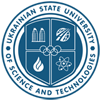PERCEPTIONS AND PRACTICES OF ACADEMIC LIBRARIANS IN HANDLING AND MANAGING OPEN EDUCATION RESOURCES (OERs): BASIS FOR CAPACITY BUILDING PLAN
DOI:
https://doi.org/10.15802/unilib/2020_220361Keywords:
academic libraries, capacity-building, handling, management, open educational resources (OERs)Abstract
Objective. This study determined the perceptions of academic librarians on open educational resources (OERs) in terms of familiarity, utilization by patron and purpose, management practices of OERs in terms of handling and storage, organization and marketing, and problems encountered in handling and managing OERs. Methods. It utilized quantitative-qualitative research design or mixed method using a validated researcher-made questionnaire. Descriptive statistics, which mainly consist of frequency distribution, percentile, mean and standard deviation, were used while thematic analysis was utilized for the qualitative data. Results and Discussion. The study revealed that academic librarians are moderately aware on OERs. Regarding digitized library collections, academic librarians are fully aware. In terms of utilization by patron, it was reported that majority of the types of OERs are rarely utilized. The top three types which are seldom utilized by patrons are course materials, digitized library collections and open textbooks. Conclusions. The familiarity of librarians on OERs depends on the degree of their exposure to such resources. Utilization of OERs by patron improves when guided on how to use them. Purpose is defined based on the optimal usage of the OERs. Lack of familiarity and exposure to OERs may lead to poor handling and storage, organization and marketing of these resources resulting to low appreciation from clients. A capacity building plan is needed to improve the handling and management of OERs in academic libraries.
References
Allen, I. E., & Seaman, J. (2016). Opening the curriculum: Open educational resources in US higher education, 2014. Babson Survey Research Group. Retrieved from https://www.onlinelearningsurvey.com/reports/openingthecurriculum2014.pdf (in English)
Atkins, D.E., Brown, J.S., & Hammond, A.L. (2007). A review of the open educational resources (OER) movement: Achievements, challenges, and new opportunities. Retrieved from http://www.hewlett.org/uploads/files/ReviewoftheOERMovement.pdf (in English)
Baker, A., Carney, K., & Schwark, C. (2019). The School Librarian’s Role in the Adoption of Open Educational Resources. School Libraries Worldwide, 25(1), 87–104. doi: https://doi.org/10.29173/slw8236 (in English)
Centre for Educational Research and Innovation. (2007). Giving knowledge for free: the emergence of open educational resources. Paris, France: OECD Publishing. Retrieved from http://www.oecd.org/education/ceri/givingknowledgeforfreetheemergenceofopeneducationalresources.htm (in English)
Creswell J. W. Fetters M. D., & Ivankova N. V. (2004). Designing a mixed methods study in primary care. The Annals of Family Medicine 2(1):7-12. doi: https://doi.org/10.1370/afm.104 (in English)
Downes, S. (2006). Models for sustainable Open Educational Resources. National Research Council Canada. Retrieved on November 30, 2020 from https://www.oecd.org/education/ceri/36781698.pdf (in English)
Johnstone, S. M. (2005). Open Educational Resources serve the world. EDUCAUSE Quarterly (EQ), 28(3). Retrieved from https://er.educause.edu/-/media/files/article-downloads/eqm0533.pdf (in English)
IFLA. (2020). Open Educational Resources and Libraries. Retrieved on October 30, 2020 from https://www.ifla.org/files/assets/clm/news/oer_ifla_brief.pdf (in English)
Kompar, Fran. 2016. The Trending Librarian. Teacher Librarian, 44(1): 58–62. Retrieved from https://www.questia.com/magazine/1G1-469315275/the-trending-librarian (in English)
Lin, Hong. (2019). Teaching and learning without a textbook: undergraduate student perceptions of Open Educational Resources. International Review of Research in Open and Distributed Learning, 20(3): 1-18. Retrieved from https://eric.ed.gov/?id=EJ1223633 (in English)
Mardis, M. A. (2015). Collect or curate? Open education resources and the future of the school library catalog. School Library Monthly, 31(4), 29-31. Retrieved from https://mardis.cci.fsu.edu/11.NonrefereedJournalArticles/11.8mardis.pdf (in English)
Mwinyimbegu, C. M. (2018). The role of libraries and librarians in open educational resources in Tanzania: the case of selected public university libraries. Library Philosophy and Practice (e-journal): 1-15. Retrieved from https://digitalcommons.unl.edu/libphilprac/2097/ (in English)
Oxford, R. (2020). OER for librarians. Retrieved on December 7, 2020 Retrieved from https://www.asccc.org/sites/default/files/ASCCC_%20OER%20for%20Librarians.pdf (in English)
Petrides, L., Jimes, C., Middleton, A., Detzner, C., Walling, J., & Weiss, S. (2011). Open textbook adoption and use: Implications for teachers and learners. Open Learning: The Journal of Open, Distance and eLearning, 26(1), 39-49 Retrieved from https://eric.ed.gov/?id=EJ911500 (in English)
Rogers, E. M. (2003). Diffusion of innovations (5th ed.). New York: Free Press. Retrieved from https://teddykw2.files.wordpress.com/2012/07/everett-m-rogers-diffusion-of-innovations.pdf (in English)
Schön, S. (2008). Open educational resources and practices. eLearning Paper. Retrieved from https://www.academia.edu/251544/Open_Educational_Resources_and_Practices (in English)
Schaffert, Sandra and Geser, Guntram (2008). Open Educational Resources and Practices. eLearning Papers, Nº 7. Retrieved from https://www.researchgate.net/publication/28215644_Open_Educational_Resources_and_Practices (in English)
Subrahmanyam, V. V. (2019). Approaches for curation of open educational resources. India. Retrieved from https://www.researchgate.net/publication/334085214_Approaches_for_Curation_of_Open_Educational_Resources (in English)
University of Torronto. Libraries. (2020). Libraries and open education: roles of libraries and librarians/pedagogy. Retrieved on November 20, 2020 from https://guides.library.utoronto.ca/c.php?g=448614&p=3199143 (in English)







